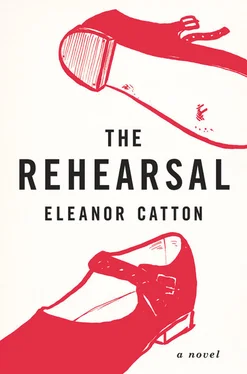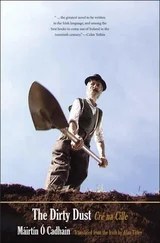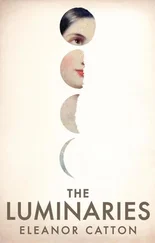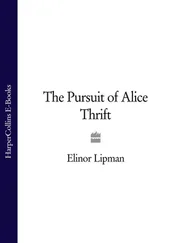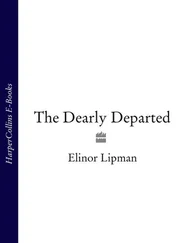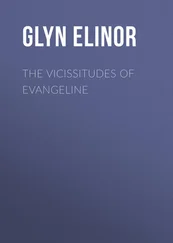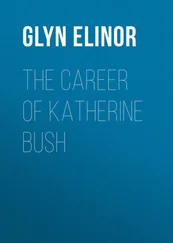“I don’t mean that I wish you were there,” the saxophone teacher says. “What I mean is that everything I do with other people becomes a kind of proof. As if I were invisibly proving something to you. As if I were saying, all the while, This is what you didn’t see in me. This is what you could have had. This is what you missed out on.”
“You want me to be jealous,” Patsy says.
“No,” the saxophone teacher says. “It’s not that I want you to be jealous. I just want you to see me at my best. Sometimes I act as if you really were watching, just to prove it to myself. Sometimes I say things when I’m at my most intimate that don’t even make sense to the person at hand. They’d only make sense to you. If you were watching.”
“Honey,” Patsy says, quietly.
There is a silence.
“Of course I’m going to rehearse all of this in the mirror,” the saxophone teacher says at last. “Before I say it to you. I’ll rehearse it over and over. Until I have the confidence to tell you this, out loud.”
Monday
“Tell me about Isolde,” the saxophone teacher says outright, when Julia arrives for her lesson on Monday afternoon.
Julia raises her eyebrows as she wiggles out of her anorak and slings it over the back of the armchair. She is still radiating the cold winter air she has brought into the room with her, and the sax teacher catches it in a brief current, breathing it in like an alien scent.
“Tell me about Patsy,” Julia says.
“Who?” the saxophone teacher says stupidly, letting her arms fall to her sides, and then in irritation she pulls at her sleeve and says, “I mean, I know who Patsy is. I meant why.”
Julia shrugs. “There’s a sign up in my homeroom,” she says, “and it says, Who’s asking the questions in this classroom?”
The saxophone teacher narrows her eyes. “How do you know who Patsy is?”
“All your letters are addressed care of Patsy,” Julia says, pointing. “Is she your lover?”
The saxophone teacher flushes scarlet. “This is Patsy’s studio,” she says in a dignified voice. She twitches her chin up. “Patsy left me the studio.”
“Like in a will?”
“No, she’s not dead. It still legally belongs to her. That’s why the letters are addressed care of her post-box.”
“So she’s not your lover.”
The saxophone teacher taps her fingers on the desk. “Tell me about Isolde,” she says.
Julia runs the tip of her tongue over her bottom lip, and then she says, “We meet in the drama cupboard at school. Nobody’s ever in there, and we wedge the door shut anyway. We make a nest out of nuns’ habits and Nazi uniforms and hoop skirts, and when the bell rings we leave one after the other, with a decent break in between, so nobody notices.”
“And?”
“And what?” Julia says.
“That’s not enough,” the saxophone teacher says. “It’s not enough, just to know that you’re in there. How did you get there? How did it start?”
“Why do you want to know?” Julia says. “You’ll still be on the outside looking in. Even if you know everything, even if you know all the things you shouldn’t, even then you’ll still be on the outside. Why did she leave you this studio?”
They are tense, like two dogs chained apart.
“As a vote of confidence in my music,” the saxophone teacher says. “She taught me saxophone, once upon a time, but she got arthritis early. It started in her thumbs and then spread outward, like a slow and painful inkblot, outward from her thumbs across her hands. She had to stop teaching. She went back to university, and I just took over her studio. I replaced her, I guess. I pay rent to her now.”
“She was your teacher?”
“Once, yes.” The sax teacher hesitates, her hands clutching at her elbows, but then she draws a breath and says quickly, “What do you do in the drama cupboard?”
“Mostly we talk,” Julia says. “There’s only gib board between the drama cupboard and the practice rooms so we have to be quiet. That’s how Mr. Saladin and Victoria got found out, Isolde said. Somebody was in the drama cupboard and they heard them through the wall. It’s always pitch dark in there—we don’t dare to turn on the light because it’ll shine under the door. My favorite thing she does in the dark is she makes her two forefingers into little calipers and she keeps checking to see if I’m smiling, feeling my face in the dark and lying there with her fingers resting, just lightly, at the corners of my mouth. That’s my favorite thing.”
“What do you say? When you talk. What do you say to each other?”
“We talk about the preciousness of it all,” Julia says. “How fortunate we are. How lucky we are that the accident of my attraction coincided with the accident of hers. We just lie there and marvel, and feel each other’s skin, and inside I feel years and years older than I actually am—not like I’m weary or wise or anything, but more like what I’m feeling is so huge it connects me to something still huger, something infinite, some massive arc of beautiful unknowing that is bigger than any kind of tiny trap of time, or space, that might otherwise contain me. It feels like that one moment, that one tiny shard of now , that brief and perfect moment of touching her skin and tasting her tongue and feeling so utterly captured, so caught in her, that moment is all I’m going to need to nourish me for the rest of my life.”
The saxophone teacher has fumbled with her hand to find the edge of the desk, and she sinks back against it weakly.
“But at the same time, the feeling is shot through with a kind of sadness,” Julia says, “a bittersweet and throaty sadness that sits heavy in my gullet and I can’t swallow it down. It’s like I know that I am losing something; that something is seeping away, like water into dust. And it’s a weird idea, the idea that loss—the massive snatching tearing hunger of loss—is something that doesn’t start when a relationship ends, when she melts away and disappears and I know that I can never get her back. It’s a feeling that starts at the very beginning, from the moment we collide in the dark and we touch for the very first time. The innocence of it—the sweetness and purity of it, the shy and halting tenderness of it—that is something that I am only ever going to lose .”
Julia takes a step toward the saxophone teacher. “Is that how you felt?” she says. “With Patsy?”
“Julia,” the saxophone teacher says, and then she doesn’t say anything for a moment. She draws a hand over her eyes. “Patsy,” she says, but then she falters and changes her mind.
“Let me tell you something, Julia,” she says at last. “That moment you’re talking about. That one perfect kiss. It’s all there is. Everything from this point onward is only going to be a facsimile, darling. You will try and re-create that one kiss with all your lovers, try and replay it over and over; it will sit like an old video loop on a television screen in front of you, and you will lean forward to touch the cool bulge of the glass with your forehead and you will feel the ripple-fur of static with your fingers and your cheek and you will be illumined, lit up by the blue-black glow of it, the bursts of light, but in the end you will never really be able to touch it, this perfect memory, this one solitary moment of unknowing where you were simply innocent of who you were, of what you might become. You will never touch that feeling again, Julia. Not ever again.”
“Is that how it is for you?” Julia says. “With Patsy?”
The saxophone teacher expels a breath and says nothing.
“Where’s Patsy now?” Julia says.
“Oh, she still lives in the city,” the sax teacher says, waving a hand vaguely, north by northwest. “We’re just very old friends, Julia. Patsy’s married. We’re just old friends.”
Читать дальше
